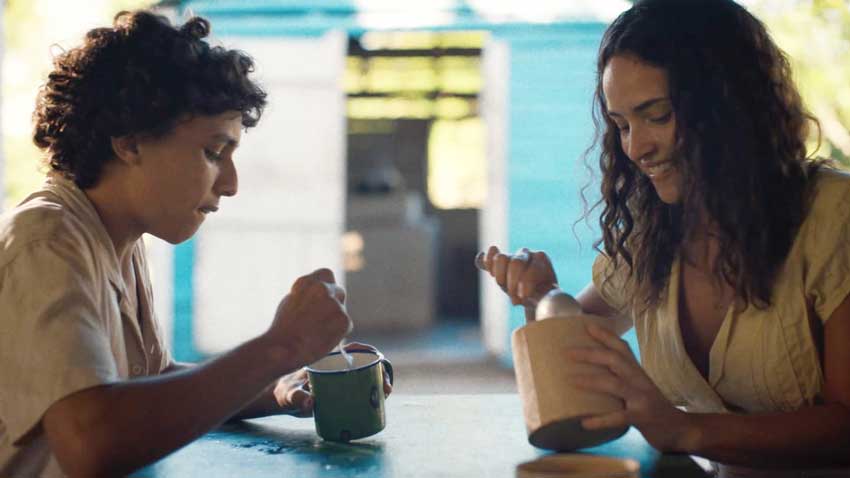Review: 'Los Frikis' - A Heartbreaking Yet Uplifting Tale of Rebellion, Freedom, and Community
- Details
- Category: New Series and Movie Reviews
- Published: Friday, 27 December 2024 15:30
- Written by Lupe R Haas

If you loved THE PEANUT BUTTER FALCON, LOS FRIKIS should be your next must-watch. Michael Schwartz and Tyler Nilson, the visionary writer-directors behind THE PEANUT BUTTER FALCON, delve into another poignant true story—this time set against the backdrop of 1990s Cuba.
Starring Adria Arjona (Andor, HITMAN), Héctor Medina (VIVA), and breakout talent Eros de la Puente, the film chronicles the lives of a group of young men immersed in the banned punk subculture. In a desperate bid for stability amidst Cuba's economic crisis, they inject themselves with HIV to gain access to government-run sanctuaries, where they are guaranteed medicine and three meals a day.
SPIDER-VERSE filmmakers Christopher Miller and Cuban-American filmmaker Phil Lord produce through their production shingle Lord Miller.
Among them is 18-year-old Gustavo (played by de la Puente), who chooses this unconventional path over migration to the United States. Following his older brother to the sanctuary, Gustavo discovers a newfound sense of freedom, unlike anything he has known.
The film is a tender coming-of-age story told through Gustavo’s naive yet hopeful eyes. Eros de la Puente delivers a captivating performance, infusing Gustavo with an innocence and light-hearted charm that makes his journey deeply relatable and emotionally resonant.
Adria Arjona, who has recently risen to prominence with roles in Andor and HITMAN, showcases her range in a raw and transformative performance as the group’s fierce yet compassionate guardian. This role underscores her growing reputation as one of Hollywood’s most versatile actors.
The film’s title, LOS FRIKIS, references a countercultural movement in Cuba in the 1980s and 1990s heavily influenced by punk rock, heavy metal, and anti-establishment ideals. These "frikis" (a Cubanized take on “freaks”) rejected socialist norms, embracing alternative music, fashion, and lifestyles that clashed with the mainstream.
The film grapples with the haunting question: Why would Cubans willingly infect themselves with HIV? For many, the alternative—life on the streets of Havana during a crushing economic crisis—was equally, if not more, grim. Schwartz and Nilson deftly portray the bleak reality of 1980s and 1990s Cuba, where food was scarce, freedom was elusive, and survival often necessitated unthinkable choices.
Within the sanctuary, the story unfolds as a bittersweet exploration of what it means to find joy and community in the most tragic circumstances. For the frikis, the sanctuary becomes a paradoxical paradise—a haven that offers camaraderie, music, and fleeting freedom, but at a devastating cost.
Heartbreaking yet cathartic, LOS FRIKIS captures the resilience of the human spirit and the power of community. Schwartz and Nilson excel at telling stories about outcasts and the unique bonds they form. Much like The THE PEANUT BUTTER FALCON, this film is a heartfelt meditation on how societal norms can confine, and how true freedom is often found in embracing life outside the system.
LOS FRIKIS is now playing in movie theaters.